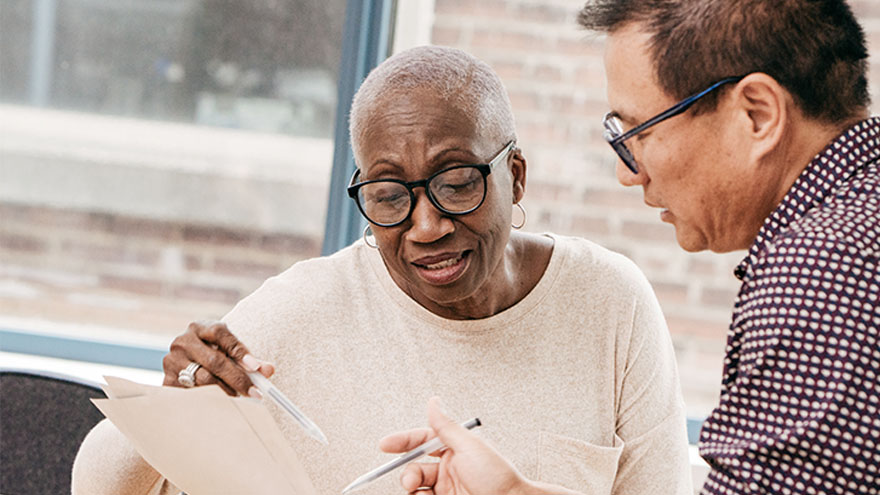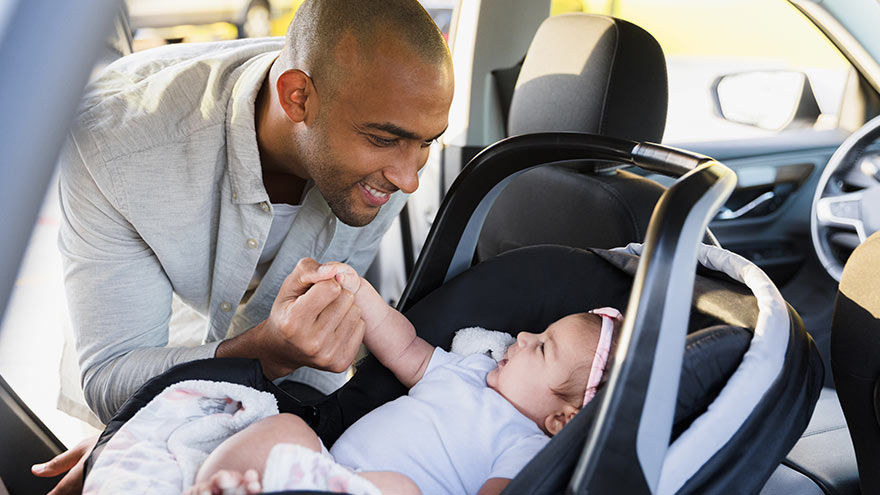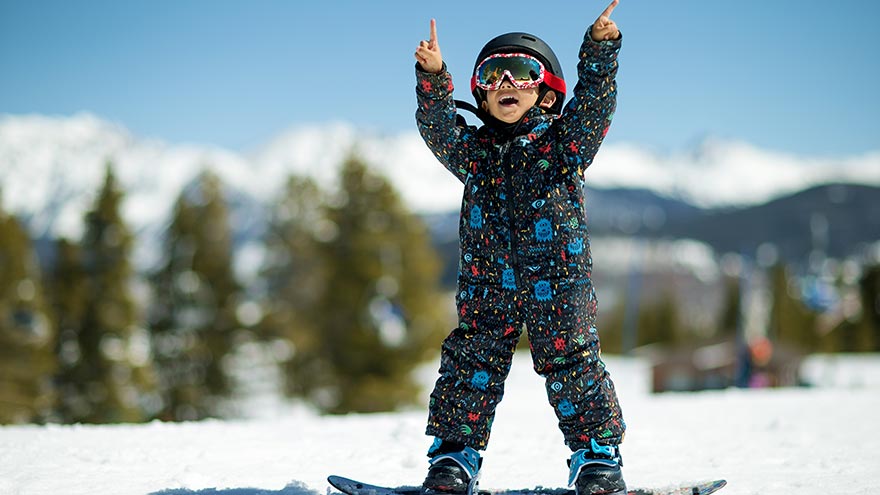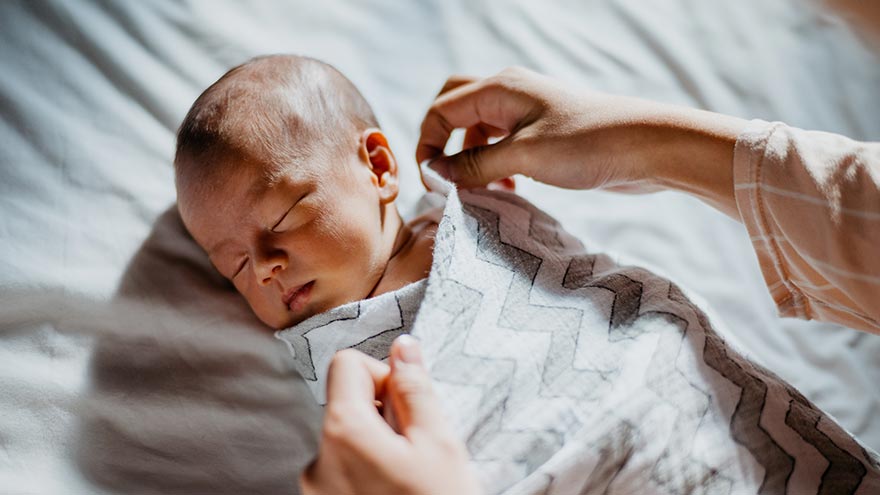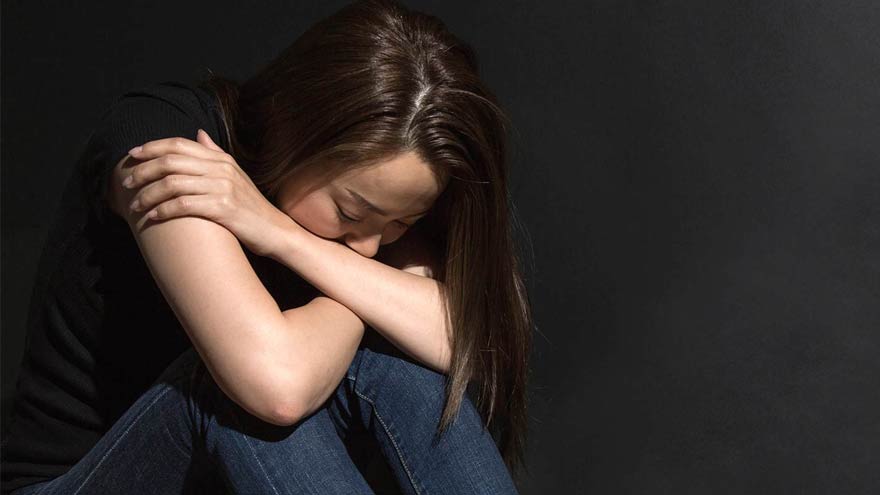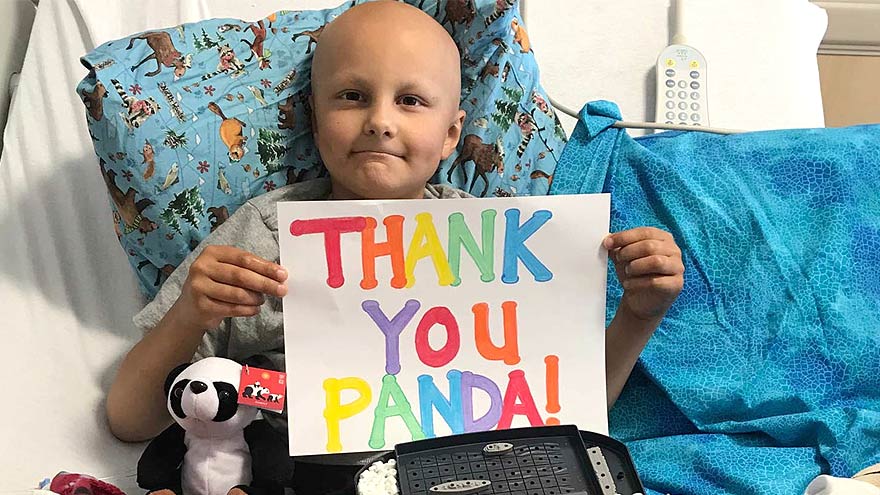Buscar
-
How to Protect Your Kids from Heatstroke
Summer is around the corner, bringing heightened risks of heatstroke, especially for children who cannot regulate their body temperature as efficiently as adults. Infants are particularly vulnerable and may not express discomfort, so never leave a child unattended in a vehicle. Top Tips for Preventing Heatstroke Reduce the number of deaths from heatstroke by remembering to ACT. Avoid heatstroke-related injury and death by never leaving a child alone in a car, not even for a minute. And make sure to keep your car locked when you’re not inside so kids don’t get in on their own. Create reminders. Keep a stuffed animal or other memento in your child’s car seat when it’s empty, and move it to the front seat as a visual reminder when your child is in the back seat. Or place and secure your phone, briefcase or purse in the backseat when traveling with your child. Take action. If you see a child alone in a car, call 911. Emergency personnel want you to call. They are trained to respond to these situations Keeping Your Baby Cool in the Back Seat In hot weather, it is crucial to keep your baby cool and hydrated by using a car seat cover or towel over them to reflect the sun's rays. Dress your baby in lightweight clothing that covers their arms and legs. Keep an eye on your baby's skin color. Move them to a cooler place if they look too red or flushed. Keep the temperature at a comfortable temperature for you, not for your child. Keep the windows cracked open for ventilation and ensure nothing is blocking the airflow from entering or exiting the vehicle. Dress your infant appropriately for their environment, including appropriate head and neck coverings, to keep them cool and protected from sunburns. Ensure you have enough fluids to last an hour before getting out of the car or use bottled water if possible. Never leave your child unattended in a car. Steps to Follow if You Suspect Heatstroke Call 911 immediately. Cool the victim – Get the person to a shady area, remove restrictive clothing and cover skin with sheets soaked in ice-water, and place ice packs in the arm pits and groin. Have the victim drink cool fluids, preferably an electrolyte-containing sports drink. Monitor body temperature with a thermometer but stop cooling efforts after temperature has dropped to 102 Fahrenheit. Baby Safe Classes These classes help prepare parents for emergencies that may occur in baby’s first year. Safe Kids Worldwide Did you know heatstroke is the leading cause of non-crash related fatalities in children? “On average, every 10 days a child dies from heatstroke in a vehicle. In more than half of these deaths, the caregiver forgot the child was in the car.”
-
Navigating Renowns Cancer Care Resources Your Essential Guide
Cancer is challenging, but no one has to go through it alone. Patients and their loved ones can navigate the journey towards healing and recovery with the proper support and resources from Renown Health. When faced with a cancer diagnosis, access to reliable and comprehensive cancer resources is key. These resources provide vital information, support, and guidance for patients, caregivers and loved ones throughout cancer treatment and recovery. Cancer Resources Breast Cancer Newly Diagnosed Orientation Class Cancer Support Groups Caregiver Support General Cancer Support Group Lymphedema & Physical Therapy Men’s Prostate Cancer Support Group Newly Diagnosed Breast Cancer Workshop Smoking Cessation Spiritual Center Activities & Programs Sterling Silver 55+ Club Facebook Group At Renown and in collaboration with community partnerships, we offer a variety of resources and specialty care programs focused on improving the quality of life after cancer including: Cancer support groups play a crucial role in providing emotional, psychological, and practical assistance to those affected by cancer These groups often consist of individuals who have been through similar experiences and can offer guidance, empathy, and understanding. They provide a safe space for individuals to share their feelings, concerns, and experiences with others who truly understand what they are going through.
Read More About Navigating Renowns Cancer Care Resources Your Essential Guide
-
2 Errores peligrosos en el asiento del automóvil y sus soluciones
Car seat mistakes can have very serious consequences. Misuse of a car seat can injure your child, or fail to keep them safe in the event of a crash. A lot goes into finding the right car seat for your child. With so many factors to consider (including age, weight and height of the child, type and brand of a car seat, cost of the car seat, etc.) it can be easy to forget critical factors. Here are two common mistakes that certified technicians often find when speaking with parents. Mistake #1: Getting a used car seat without knowing its history Why: A used or secondhand car seat can pose several factors that can compromise its safety in a crash. First, car seats expire six to ten years after their date of manufacture, so refer to the car seat's manual for recommended car seat longevity. The safety mechanisms can be compromised if a car seat has been in a crash. So it's crucial to replace your car seat following a collision. Solution: Only use a car seat if you know its history. A new car seat is your best bet, as they are up to date on the latest safety guidelines, and safety mechanisms are up to standard. However, if you are considering a used car seat for your child, please ensure the following: The car seat has never been in a car crash. The car seat isn't expired or outside the manufacturer's recommended longevity. It comes with the car seat manual and has all safety labels, including manufacture date, model number, and use instructions and restrictions. The car seat or any of its parts have not been recalled. The overall state and integrity of the car seat and its parts are undamaged. The carseat or any of its parts have not been recalled and are present and in working order.
-
Know Before You Go
Grab your skis, goggles, coat – and don’t forget that helmet. Skiing and snowboarding are fun activities for all ages but come with the risk of injury. Read on for tips to make it a safe day on the mountain. Daydreaming about your next trip to the slopes? We talked to Jared Worchel, DO, about his top tips for gearing up. Get the Gear Before you head out to ski or snowboard, make sure you have all your gear ready and in good condition. Everything should fit correctly so that it keeps you as safe as possible. Wearing proper gear will also help keep you warm. Items to check on before you head out include: Boots Bindings Goggles Poles Helmet Outwear Gloves Pack water and snacks in case the drive takes longer than you except due to weather or traffic. You’ll also want to make sure that your cell phone is fully charged before you head out in case you need to contact friends of staff for help while on the mountain. Helmet, Helmet, Helmet Having a helmet that fits correctly is the most important thing you can do to prepare for a safe day on the mountain. According to a National Ski Areas Association study, helmet use has increased over the last 15 years, with 80 percent of skiers and snowboarders using helmets. Schubert would like to see that number increase to 100 percent. “If you have a head injury it could take you out for the rest of your life,” Dr. Worchel said. “The most important things to think about when fitting a helmet are making sure that it really fits you appropriately. You want to go into a store and try on as many different helmets as they have available. I know it’s tempting to buy one online, but you’re never going to know if it fits correctly.” If you are in an accident, your helmet’s fit can help protect you. Dr. Worchel has some tips on fitting: A helmet should fit low and snug over the head. Make sure that the helmet doesn’t wiggle or feel loose. Look for a model that has adjustability in the back, which will help you make sure it fits snugly. F ind a helmet with a chin strap that will help it stay in place throughout the day.
-
Top Safe Sleep Tips for Your Baby
Becoming a parent for the first time means lots of new unknowns – from learning to breastfeed and swaddle to buckling your newborn into the car seat for the first time. But when it comes to putting them to bed safely, it’s important to remember it really can mean life or death. It’s something we’re taught before our little one is even here: the correct way to put your baby to bed safely. Sadly though, the number of infant deaths continues to climb. The main culprit of sleep-related infant death continues to be all the items parents leave in the crib with their babies. According to the Center for Disease Control and Prevention, there are about 3,500 sleep-related deaths among babies each year. “The best advice is ‘bare is best.’ Keep your infant’s sleep space clutter free – no blankets, bumpers, toys or pillows,” said Karen Wagner, Pediatric Nurse Practitioner. Follow the ABCs for Safe Sleep Remembering the ABCs is an easy way to remember how to put your little one to bed safely. A: Alone No blankets, toys or pillows. “We do recommend using a sleep sack as a blanket alternative,” said Karen. “It prevents the risk of suffocation and keeps your baby warm.” Keep in mind, the greatest risk for suffocation happens when babies are under 1 year of age, so it’s best to save the toys, blankets and pillows for their “big kid bed,” or around 18 months old. B: Back The slogan “back is best” is another good reminder. Keeping your baby on their back until they’re old enough to rollover helps reduce the risk of Sudden Infant Death Syndrome (SIDS). C: Crib It is best to have your baby sleep alone in their crib. While co-sleeping may be enticing, especially after a late-night feed, it increases the risks of possible suffocation. However, “having your child in your room, in their own crib or bassinet, is protective for SIDS,” Karen said. “In fact, we think co-rooming reduces SIDS risk by almost 50 percent.” Co-rooming allows parents to keep new babies in close reach and helps parents oversee their baby’s sleep, just in case something happens.
-
What Every Parent Needs to Know About SIDS
Although the exact cause of Sudden Infant Death Syndrome is unknown, there are steps parents and caregivers can take to reduce the risk. Here's what every parent needs to know. SIDS is the leading cause of death in the country in infants in their first year of life. However, the exact cause of SIDS still remains a mystery, though it is often attributed to unsafe sleeping practices. Karen Wagner, a Pediatric Nurse Practitioner at Renown Health answers some of the most commonly asked SIDS questions. Protecting Babies from SIDS: Always place babies on their backs when putting them to sleep for naps and at night. Use a firm sleep surface, such as a mattress in a safety-approved crib, covered by a fitted sheet. Share your room – not your bed – with your baby. Your baby should not sleep in an adult bed, on a couch, or on a chair alone, with you, or with anyone else. Keep soft objects, such as pillows and loose bedding, out of your baby's sleep area. Do not smoke during pregnancy or around the baby; these are strong risk factors for SIDS. The risk of SIDS is even greater when a baby shares a bed with a smoker. To reduce risk, do not smoke during pregnancy, and do not smoke or allow smoking around your baby. Your SIDS Questions Answered: Who's most at risk? Three out of five SIDS victims are boys. African American and Native American infants are twice as prone to the syndrome. Other groups at increased risk include preemies, low-birthweight babies, and infants exposed to cigarette smoke. Is putting my baby down on their back really that important? It's vital. Back-sleeping increases a baby's access to fresh air and makes her less likely to get overheated (another factor linked to SIDS). I put my child to sleep on their back at night, but can I let this rule slide for a short nap? It's not worth the risk. Babies who normally sleep on their back are 18 times more likely to die of SIDS when placed down on their tummy for a snooze. Is side-sleeping safe? No. Studies show that putting a baby down on her side rather than on her back doubles the SIDS risk. It's easier for an infant to roll onto her tummy from her side than from her back. I'm worried about my baby getting cold. Is it safe to cover them with a blanket? Wait until their first birthday. Blankets, pillows, comforters and stuffed toys can hinder your child's breathing; even soft or improperly fitting mattresses can be dangerous. If you're worried that your little one may get chilly, swaddle them in a receiving blanket or use a sleep sack.
-
Getting to Know Renown's Canine Companions
A slobbery kiss, a wagging tail, a judgement-free smile. There are few things better than the love and attention of a canine companion. At Renown Health, we have a loyal and playful group of pet therapy teams. This volunteer program uses animal-assisted interactions (AAI) and animal-assisted therapy (AAT) to provide comfort, reduce boredom, increase social interactions, improve mood, boost general well-being and – perhaps most importantly – bring smiles to our patients’ faces. Benefits of AAT & AAI: Lowers blood pressure and heart rate by relieving anxiety Helps in pain management Eases feelings of depression, loneliness, boredom and isolation Stimulates communication Encourages physical activity For more information about the program, a complete list of our teams or to get involved, click here. Meet Keno and Linda Linda, Keno’s human, has volunteered as one-half of a therapy dog team for more than 14 years. Keno is her third Newfoundland, and he is a sweet and cuddly 2-year-old pup, who, according to Linds, thinks is a lap dog. “My mother was in assisted living for almost 10 years, and I saw what an impact a therapy dog can have,” Linda said. When she moved to Reno from Portland six years ago, she immediately contacted Renown. A Memory the Stands Out: A patient in the ICU was not responsive because of oxygen deprivation due to almost drowning. Linda and Keno went into the patient’s room at his physical therapist’s request, and the therapist asked the patient to reach out and pet the dog. After the third request, he moved his hand toward the dog, and his mother burst into tears. It was the first time the patient had moved since his accident. Linda and Keno went back several days in a row, and soon the patient was talking, sitting up and eating on his own. Meet Madi and Clark Madi, Clark’s human, is an employee at Renown, and Clark made it a family affair by joining the team in Sept. 2021. Clark is a unique pup with an amazing demeanor who adores everyone as much as they adore him. He is a hardworking Goldendoodle who loves to be a goofball at home when he’s off the clock. Why They Became a Therapy Dog Team: Madi was inspired to get Clark trained as a therapy dog because, as an employee at Renown, she was always so happy to see dogs walking around, and she knew that I wanted to provide that same relief to others. Her favorite thing about being a Renown volunteer is the joy it spreads to those working and the patients they are caring for. Meet Richard and Raven Raven is a four old Belgian Malinois who has been working as a therapy dog for two and a half years. She is calm, friendly and loves having her tummy rubbed. “The therapy dog teams are just one little part of Fighting the Good Fight,” Raven’s human Richard said. A Memory that Stands Out: Raven and Richard were assigned to the Sierra oncology ward one shift and visited a woman who had a picture of her dog displayed next to her bed. Raven immediately went to the bedside and the patient started petting her. As she spent more time petting Raven, Richard could see the stress disappearing from her face. He later learned that it was the patient’s first chemotherapy infusion, and Raven gave her the peace and the strength she needed to face the chemotherapy head-on. Meet Savannah and Hallie Hallie and Savannah’s journey as a therapy dog team began in 2017 at the Morgan Stanley Children’s Hospital in New York and has also taken them to San Francisco General Hospital and Stanford Hospital. The duo moved to Reno in 2020 and immediately joined the Renown Pet Therapy Program. A friend, energetic and cuddly American Cocker Spaniel, Hallie especially loves spending time with the young children at the hospital. A Memory That Stands Out: Savannah remembers one visit to a patient in the Children’s Emergency Room who was struggling with suicidal thoughts. Having struggled with mental health herself, Savannah felt a deep connection to the patient and a need to help. She recalls placing Hallie on the patient’s bed a seeing a “very small hint of a smile.” Savannah later learned that the Renown nurses hadn’t seen the patient smile in days. It was that moment that made Savannah realize what a profound impact Hallie can have on patients. Meet Chivas and Donna Chivas was a McNab/Border Collie mix who volunteered at Renown with her human Donna for two years. With help from Donna, Chivas was a master at reading situations in the hospital and reacting accordingly. For example, if a patient was afraid of dogs, she would sit with her back to the person so she didn’t come off as threatening. Contrarily, she would lie down on the floor when playing with young children to let them pet her on their level. Why They Became a Pet Therapy Team: This dynamic duo started out as a member of a local pet therapy group. During the height of the COVID-19 shutdown, they participated in outdoor pet therapy parades for various hospitals in the area. Donna and Chivas met Renown Volunteer Coordinator Wendy Peuket at one of the parades and she inspired Donna to pursue becoming a registered therapy dog team for Renown's Therapy Dog Program. Chivas sadly passed away unexpectedly in early December 2021, and the world is a whole lot dimmer place without Chivas’ light shining brightly.
-
A Family's Legacy
Dr. Derek Beenfeldt first joined the Renown family in 2014 as a family medicine physician after graduating from University of Nevada, Reno, School of Medicine (UNR Med) in 2011. His son Davis was only 10 years old when Dr. Beenfeldt decided to change careers and attend medical school. Ten years later, Davis is following in his dad’s footsteps as a third year student at UNR Med. “I am proud of Davis for taking on the challenges and the commitment that I know goes along with attending medical school,” Dr. Beenfeldt said. “I also feel lucky that we have a medical school with such a great reputation and resources close to home.” The affiliation is a great source of pride for Dr. Beenfeldt. Not just because two important organizations in his life are joining forces, but he also sees it as both entities taking on an immense responsibility – the challenge to be better for incoming students, and subsequently to improve healthcare in Nevada. Davis is currently going through his rotations and spending countless hours a week at Renown Regional. His dad is right there by his side supporting him along the way. “It has been really interesting to have discussions about the UNR medical school with Davis, I recognize the names of many of the professors and courses from when I was a student,” Dr. Beenfeldt said. “I tried to be empathetic, as I can relate to how difficult and stressful this time is for him. Dr. Beenfeldt currently works as chief medical officer for Renown’s insurance arm Hometown Health, and Davis is still browsing specialties. “I don’t know what kind of medicine I want to focus on yet, but I feel lucky that I can attend medical school so close to home and have the option to continue helping my fellow Nevadans after I graduate.” UNR Med at a Glance UNR’s Medical School was established in 1969 Over the last 50 years, UNR Med has educated 3,900+ physicians More than 30% of UNR Med physician graduates continue to practice in Nevada UNR Med is the state’s oldest medical school
-
Human Trafficking Happens in Nevada
Each month an average of 5,016 individuals are sold for sex in Nevada. Frequently the victims of human trafficking are women and children. That’s why Renown, along with other community groups, is leading efforts to help victims. Specifically identifying them and connecting them to the support services they need. The purpose is to restore their mental and physical health give them hope for a better life. Supporting Our Community Our goal is to identify victims, providing compassionate care for the complex needs of this vulnerable population. By building partnerships with key agencies and advocates in the community and creating policies around human trafficking, we also aim to transition victims safely to community-based services. Along with training, Renown healthcare workers are armed with pocket guides reminding them how to support human trafficking victims. To provide awareness about this crisis, Renown has implemented four key initiatives: Educate health care providers Execute policies and procedures to identify victims Build partnerships with local law enforcement, emergency services and local advocates Connect victims to crucial community resources Human Trafficking: How You Can Help Awaken acts to transform our community with the ultimate goal of ending commercial sexual exploitation. In 2020, Awaken worked with 173 women and children. Awaken’s programs include a drop-in center, an 18 to 24 month transitional housing program, an educational center for trafficked youth, rental assistance, recovery groups, therapy, tutoring, case management, mentorship, safety, and community. National Human Trafficking Hotline: 1-888-373-7888 Local Emergency: 911 Did You Know?
-
Panda Cares Center of Hope at Renown Children's Hospital
When you have an ill child in the hospital, it is a stressful event. And Panda Express is helping local families support children who need special care. Their generous donation provides much-needed equipment, programs, and resources via the new Panda Cares Center of Hope, Renown Children’s Specialty Center. Their partnership directly benefits patients and their families! The ‘Panda Cares Center of Hope, Renown’s Children’s Specialty Center’ In fact, this new center provides care to not only children, but also comprehensive support to the entire family. Similarly, it creates an environment that reduces stress, promotes healing, and provides a superior patient and family experience. This facility upholds Panda Express’ mission, vision, and values and its four pillars: to directly help fund the emotional, mental, physical, and spiritual needs of children. This center, the first-ever in northern Nevada, will provide care for children who have chronic conditions. In particular, it offers ongoing treatment, health management, and specialty medical services, including: Nephrology Endocrinology Neurology Pulmonary Infectious Diseases Medical Genetics Adolescent Medicine How You Can Help! When you order from Panda Express, you can opt to round up your change, which will help support programs and services, such as the Center of Hope for Renown Children’s Hospital. Order Online A Partnership for Health & Education of Underserved Youth This partnership allows Renown Children’s Hospital to continue to strengthen regional services and increase Panda’s visibility within our growing community. Last year, 21,930 sick children received care from Renown Children’s Hospital. To date, Panda Express has raised $449,200 in financial support to assist us in providing health and education to every child, regardless of illness, injury, insurance, or ability to pay. Panda Express funds have already supported: Giraffe omni beds for the NICU Ultrasound machine for the Children’s ER Panda warmers and a hand held Accuvein machine Child Life Program to support sick patients and families Meeting room in the Children’s Specialty Center In kind donations, volunteer time and support of local events such as the University of Nevada Reno, Wolf Pack Dance Marathon
Read More About Panda Cares Center of Hope at Renown Children's Hospital

